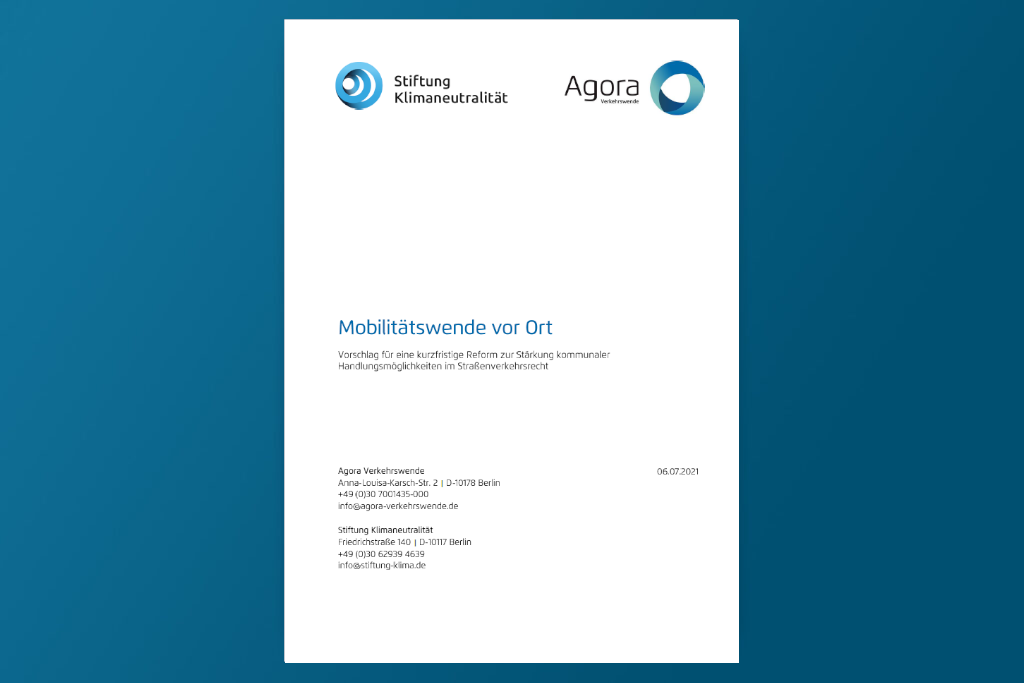Municipalities are in a key position to advance sustainable mobility – for example, by establishing bicycle lanes, car-free zones or parking space management. However, in Germany the current legal framework, federal road traffic law, often hinders municipalities in doing so. Against this background, the Climate Neutrality Foundation and Agora Verkehrswende have commissioned the law firm Becker Büttner Held to provide a legal opinion on the question of how road traffic law can be amended quickly in such a way as to strengthen local authorities’ options for transforming the transport sector (in German only).
Based on the legal opinion, Climate Neutrality Foundation and Agora Verkehrswende make a proposal for a quick reform of road traffic law (in German only).
The proposed cornerstones of the reform are:
- Expansion of the regulatory purpose of road traffic law: In addition to the safety of all road users, climate and environmental protection, health protection and support for sustainable urban development and traffic planning are included.
- Redesign of Section 45 of the German Road Traffic Act (StVO): This paragraph, which is central to the ability of municipalities to act, will be redesigned in the sense of a holistic decision-making practice at the municipal level.
- Legal framework for sharing services: A uniform federal regulation for all sharing offers will create the necessary legal framework to ensure that sharing offers are used as a genuine instrument for sustainable mobility.
- Reasonable speed: The maximum speed in built-up areas will be set at 30 km/h. Municipalities can deviate from this rule in exceptional cases by ordering a speed limit of 50 km/h in built-up areas.
